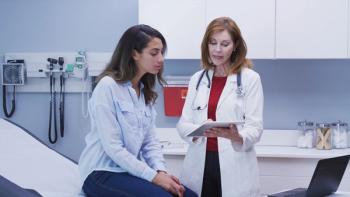
Nursing Call to Action: Survivorship Planning
Building momentum for implementing survivorship care plans for all.
Now that 2019 has arrived, what does this new year mean to our oncology patients?
For those deep in their treatment journey, a new year can mean it is finally time to exhale. They were blessed with one more holiday season among their loved ones, but the future is still uncertain. For those with a new diagnosis, a new year means this is the start of a year unlike any other, filled with a new routine and the word “cancer,” but also with a surge of hope because there are nurses and providers like you who will do all they can to get them through this year with comfort and support. Then again, New Year’s Day for our patients may not even be Jan. 1; it may be the date that they were finally able to leave the word “treatment” back at the hospital and look forward to a new word: “survivorship.”
For 2018, the
No matter the disease process or geographic location, all patients should receive the same standard of care. As anyone familiar with delivering SCPs (including registered nurses, advance practice providers, and other providers) can tell you, the desire is there, but
Barriers include:
- limited time to complete SCPs
- inability to track when a patient is due
- varying education on when or how to provide an SCP and
- the complex patient path through surgery, treatments, and multiple providers which leads to confusion in which “team” should be providing SCPs
While adding a new process or task to nursing staff is quite difficult, doing the right thing for the patient should not be. What is the missing key to keeping accredited centers from playing catch-up so that their quality and accreditation teams can sleep at night?
The American Cancer Society explains that cancer should be treated as a chronic disease after treatment.2 Consider a similar case: diabetes, a chronic disease that crosses all specialties and types of nursing. Imagine a patient admitted for diabetic ketoacidosis and a new diagnosis of diabetes. Upon discharge from crisis, we would prepare the patient with the best tools and education to stay well. We would involve a diabetic educator, dietician, and social worker, and refer the patient to the appropriate outpatient provider. Decades ago, interventions like this used to be “going above and beyond” for a patient with diabetes. Now, it is standard of care after stabilization.
Nursing care for a patient with diabetes includes widespread, standard education not just for diabetic educators, but for each and every nurse who encounters these patients. Every nurse can spot the need for education or care intervention and can refer the patient to a specialist, the diabetic educator. Diabetic educators have a wealth of information that assists patients in overcoming financial and social barriers to quality chronic disease management. A hand-off then occurs to another provider, or better yet, a medical home that will help their patient be their best. Finally, let us not forget that throughout these steps, nurses are educating and empowering the patient, who is the most important care team member.
So, what would it look like if in the scenario above we replaced diabetes with cancer (which may not be so farfetched, because the number of survivors is booming, increasing by the millions3)? All oncology nurses would have basic education on survivorship. It would be routine to access the SCP to check that a patient is following the prescribed plan. If a patient seems to be struggling with the plan, we would call in a specialized nurse educator to help refer the patient to the correct resources and get them to a provider who understands that an SCP is as vital as an insulin regimen to reference. Finally, all along the way, the patient becomes more and more educated and empowered to understand and carry out the SCP so that they are at their best.
To push SCP delivery to 100%, we need to begin to view survivorship through the same lens as any other chronic disease. When we do this, we will understand that the SCP is not the end, but a guide to the beginning of a new cancer chapter. Providing SCPs is largely in nurses’ hands, and we should take up the mantle to shift the focus on them and the understanding of them. Nurses, when we hear that bell ring, let’s continue to cheer and clap for the end of the battle; but now, let it also be the starting bell for a call to action to champion the chapter of cancer survivorship.
References
- Important information regarding CoC Survivorship Care Plan standard. American College of Surgeons website. facs.org/quality-programs/cancer/news/survivorship. Accessed January 12, 2019.
- Managing cancer as a chronic Illness. American Cancer Society website. cancer.org/treatment/survivorship-during-and-after-treatment/when-cancer-doesnt-go-away.html. Published February 12, 2016. Accessed January 12, 2019.
- Cancer statistics. National Cancer Institute website. cancer.gov/about-cancer/understanding/statistics. Updated April 27, 2018. Accessed January 12, 2019.
Newsletter
Knowledge is power. Don’t miss the most recent breakthroughs in cancer care.




